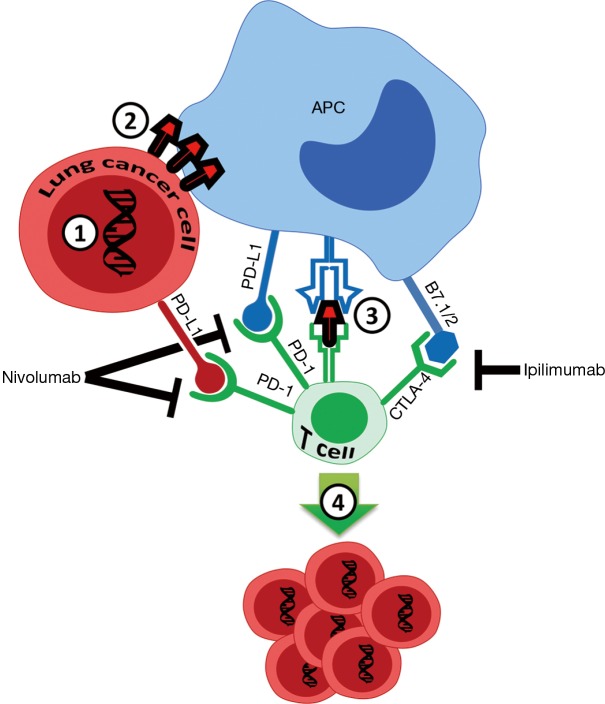Figure 1.
Small cell lung cancer (SCLC) cell mutational burden, and PD-1 and CTLA-4 inhibitor response. 1, mutations in SCLC cells, mostly related to smoking, generate neo-antigens; 2, neo-antigens are expressed on the cancer cell surface; 3, antigen presenting cells (APCs) recognize neo-antigens, and present them to CD8+ T-cells, inducing cytotoxic T-cell responses; 4, cytotoxic CD8+ T-cell activation occurs, resulting in robust neo-antigen-dependent tumor cell death. Combination of two checkpoint inhibitors is effective against subset of SCLCs with high TMB that reach a threshold for robust CD8+ cytotoxic T-cell activation. B7.1/CD80 and B7.2/CD86 are proteins expressed on APC that bind to CTLA-4 on cytotoxic CD8+ T cells.

